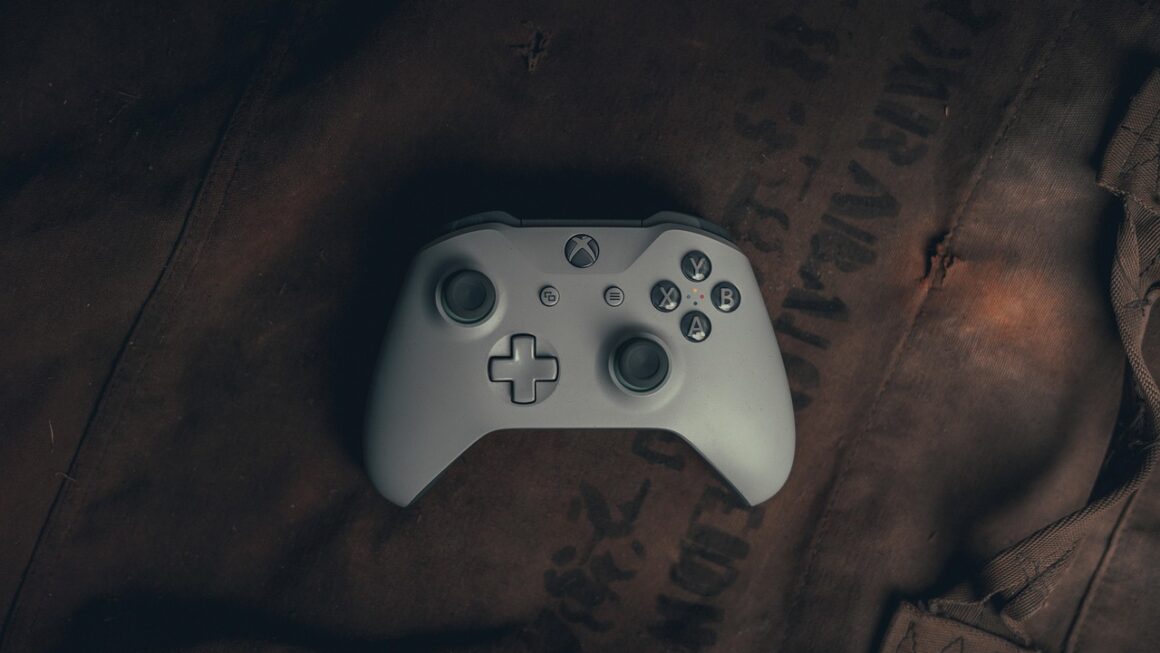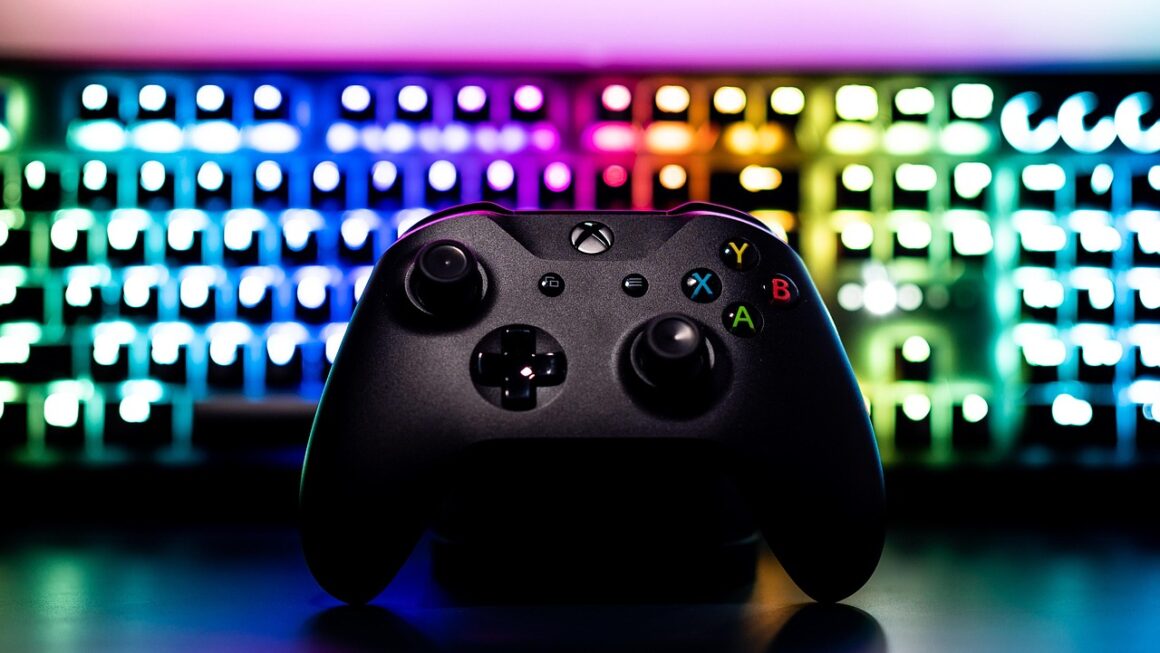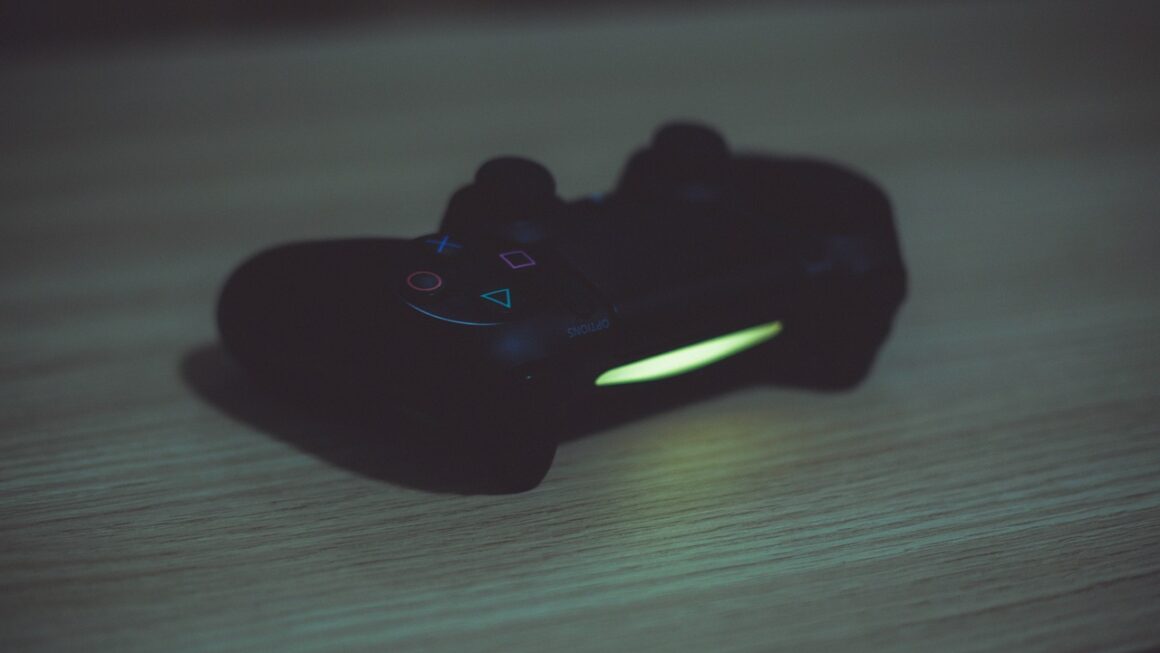Unleash the ultimate gaming experience with PC gaming! Dive into a world of unparalleled customization, cutting-edge graphics, and a vast library of games. Whether you’re a seasoned veteran or a newcomer eager to explore, this guide will provide you with everything you need to know to get started and maximize your PC gaming potential. From building your dream rig to optimizing your gameplay, prepare to elevate your gaming to the next level.
Why Choose PC Gaming?
PC gaming offers a unique blend of power, flexibility, and community that sets it apart from console gaming. The advantages are numerous and cater to a wide range of gamers, from casual players to competitive esports enthusiasts.
Unmatched Customization and Performance
PC gaming allows for unprecedented control over your gaming experience. Unlike consoles, PCs offer:
- Customizable Hardware: You can build a PC tailored to your specific needs and budget, choosing components that deliver the performance you desire. Upgrade your graphics card, CPU, RAM, and storage as needed to keep up with the latest games.
- Adjustable Graphics Settings: Fine-tune graphical settings for each game to balance visual quality with performance. Achieve higher frame rates and resolutions than typically possible on consoles. For example, you can enable Ray Tracing on supported Nvidia RTX cards for realistic lighting effects or tweak anti-aliasing settings for smoother edges.
- Modding Capabilities: PC games often support modding, allowing players to modify and enhance the game in countless ways. Add new content, change gameplay mechanics, and create unique experiences not available on consoles. Popular games like Skyrim and Grand Theft Auto V have thriving modding communities that keep the games fresh and engaging for years.
Vast Game Library and Compatibility
The PC gaming ecosystem boasts an enormous and diverse game library, offering something for everyone.
- Access to a Wide Range of Games: From AAA titles to indie gems, PC gaming platforms like Steam, GOG, and Epic Games Store offer a vast selection of games. You can also find older games that are not available on consoles, ensuring a rich and diverse gaming experience.
- Backward Compatibility: Many PC games are compatible with older hardware, allowing you to play classic titles without needing to buy a new console or game. GOG.com specializes in providing DRM-free versions of classic games that are optimized for modern PCs.
- Cross-Platform Play: Many modern PC games support cross-platform play, allowing you to play with friends who own consoles. Popular titles like Fortnite, Call of Duty: Warzone, and Minecraft offer cross-platform play, breaking down barriers between different gaming platforms.
Superior Controls and Ergonomics
PC gaming offers a wider range of control options and ergonomic solutions compared to consoles.
- Mouse and Keyboard Precision: The mouse and keyboard combination provides unparalleled precision and control in many game genres, especially first-person shooters and real-time strategy games.
- Controller Support: PC games support a wide range of controllers, including Xbox and PlayStation controllers. You can choose the input method that best suits your playstyle and preferences.
- Customizable Ergonomics: PC gaming allows you to customize your setup for optimal ergonomics. Use adjustable chairs, monitor arms, and keyboard trays to reduce strain and improve comfort during long gaming sessions.
Building Your Gaming PC: A Step-by-Step Guide
Building your own gaming PC can seem daunting, but it’s a rewarding experience that allows you to create a machine tailored to your exact needs and budget.
Choosing Your Components
Careful selection of components is crucial for a balanced and powerful gaming PC. Here’s a breakdown of the key components:
- CPU (Central Processing Unit): The brain of your PC, responsible for processing instructions. AMD Ryzen and Intel Core processors are popular choices. For example, an AMD Ryzen 5 5600X or an Intel Core i5-12600K would be great mid-range options.
- GPU (Graphics Processing Unit): The most important component for gaming, responsible for rendering graphics. NVIDIA GeForce RTX and AMD Radeon RX series cards are the leading choices. A GeForce RTX 3060 or Radeon RX 6600 XT would be good mid-range choices for 1080p or 1440p gaming.
- Motherboard: The main circuit board that connects all the components. Choose a motherboard that is compatible with your CPU and supports the features you need.
- RAM (Random Access Memory): Used for temporary data storage. 16GB of RAM is generally recommended for modern gaming.
- Storage (SSD/HDD): SSDs (Solid State Drives) offer faster loading times compared to HDDs (Hard Disk Drives). A combination of a fast SSD for the operating system and games, and a larger HDD for storage is a common setup. A 500GB or 1TB NVMe SSD is a good starting point.
- Power Supply (PSU): Provides power to all the components. Choose a PSU with enough wattage to handle all your components, with some headroom for future upgrades. Use a PSU calculator to estimate your power requirements.
- Case: Houses all the components. Choose a case with good airflow and enough space for your components.
- Cooling: Keeps your components cool to prevent overheating. CPU coolers come in air-cooled and liquid-cooled options.
Assembly Tips and Tricks
- Follow a Build Guide: Watch video tutorials and read detailed build guides to understand the assembly process. Channels like Gamers Nexus and Linus Tech Tips offer excellent guides.
- Static Electricity: Take precautions to prevent static electricity damage. Use an anti-static wrist strap and work on a non-carpeted surface.
- Cable Management: Proper cable management is crucial for airflow and aesthetics. Use zip ties or Velcro straps to organize cables.
- Test Your Build: Before installing the operating system, test your build to ensure all components are working correctly.
Optimizing Your Gaming Experience
Once you have your gaming PC built, it’s time to optimize your gaming experience for maximum performance and enjoyment.
Software and Drivers
- Operating System: Windows 10 or Windows 11 are the most popular choices for PC gaming.
- Graphics Drivers: Keep your graphics drivers updated to ensure optimal performance and compatibility with the latest games. Download the latest drivers from NVIDIA or AMD’s website.
- System Optimization: Close unnecessary background programs and services to free up system resources. Use tools like Razer Cortex or Game Booster to optimize your system for gaming.
- Anti-Virus Software: Install a reliable anti-virus program to protect your system from malware and viruses. Windows Defender is a built-in option that provides decent protection.
In-Game Settings
- Resolution and Refresh Rate: Adjust the resolution and refresh rate to match your monitor’s capabilities. A higher resolution and refresh rate will provide a smoother and more detailed gaming experience, but may require more powerful hardware.
- Graphics Settings: Experiment with different graphics settings to find the right balance between visual quality and performance. Start by lowering the most demanding settings, such as shadows, anti-aliasing, and ambient occlusion.
- Frame Rate Monitoring: Use a frame rate counter (e.g., MSI Afterburner with RivaTuner Statistics Server) to monitor your game’s performance and identify any bottlenecks.
Peripherals and Accessories
- Gaming Monitor: A high refresh rate gaming monitor (144Hz or higher) can significantly improve your gaming experience. Look for monitors with low input lag and adaptive sync technologies like G-Sync or FreeSync.
- Gaming Mouse and Keyboard: Choose a gaming mouse and keyboard that are comfortable and responsive. Look for features like adjustable DPI, programmable buttons, and mechanical switches.
- Gaming Headset: A good gaming headset can provide immersive audio and clear communication with teammates. Look for headsets with comfortable earcups, a good microphone, and surround sound capabilities.
- Gaming Chair: A comfortable gaming chair can help you maintain good posture and reduce strain during long gaming sessions.
The PC Gaming Community
The PC gaming community is a vibrant and supportive ecosystem that offers a wealth of resources and opportunities for gamers to connect and share their passion.
Online Communities and Forums
- Reddit: Subreddits like r/pcmasterrace, r/buildapc, and r/gaming are popular destinations for PC gamers to discuss topics, share builds, and get help with troubleshooting.
- Forums: Websites like Tom’s Hardware, AnandTech, and Overclock.net offer in-depth discussions on PC hardware and gaming.
- Discord Servers: Many PC gaming communities have their own Discord servers where members can chat, share tips, and organize gaming sessions.
Streaming and Content Creation
- Twitch and YouTube: Many PC gamers stream their gameplay on Twitch and YouTube. Watching streamers can be a great way to learn new strategies, discover new games, and connect with other gamers.
- Content Creation: Creating your own gaming content can be a fun and rewarding way to share your passion for PC gaming. Use tools like OBS Studio to record and stream your gameplay.
Esports and Competitive Gaming
- Esports: PC gaming is the dominant platform for esports. Games like Counter-Strike: Global Offensive, League of Legends, and Dota 2 are played competitively at the highest level.
- Competitive Gaming: Participate in online tournaments and leagues to test your skills and compete against other players. Platforms like FACEIT and ESEA offer competitive matchmaking and tournaments for various games.
Conclusion
PC gaming offers an unparalleled gaming experience with its superior customization, vast game library, and vibrant community. Whether you’re building your own gaming rig, optimizing your game settings, or connecting with other gamers online, the possibilities are endless. Embrace the power and flexibility of PC gaming and unlock a world of immersive and engaging entertainment.




